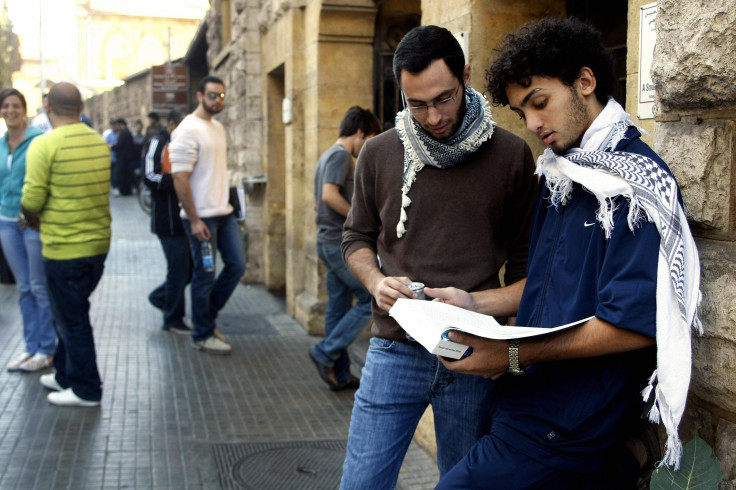Arab Youth Condemn ISIS, Blame Lack Of Jobs For Increasing Recruitment By Islamic State Group

As the Islamic State group grows its online presence and grabs headlines, its influence among young people is shrinking. At least, that's according to the annual Arab Youth Survey released Tuesday by polling firm Penn Schoen Berland.
Half of respondents named the rise of the extremist organization, also known as ISIS or Daesh, to be the No. 1 obstacle facing the Middle East. More than three-fourths said they were concerned about the group's expansion, and the same amount said they thought ISIS would fail in its quest to establish a caliphate.
"Despite increasing concern, tacit support for the militant group is declining, with nearly four in five (78 percent) rejecting the group outright even if it were to change its tactics," the survey's whitepaper read. "Just 13 percent of young Arabs say they could see themselves supporting Daesh if it did not use so much violence." Last year, that statistic was 19 percent.
Arab youth survey 2016 results - graphichttps://t.co/UXPjVlnIGQ pic.twitter.com/6oJ3RmWOOw
— The National (@TheNationalUAE) April 12, 2016
Young people's opinions on ISIS have been scrutinized over the past two years as the organization has risen in prominence. ISIS fighters have proven to be extremely talented at recruiting youth online, offering Western teens in particular an opportunity to leave behind mundane annoyances to make a difference. "ISIS provides a utopian political project, the so-called caliphate, the centralized Islamic rule," Fawaz Gerges, a London School of Economics professor and Middle East expert, told CNN last year. "ISIS provides these deluded young men and women with an adventurous trip."
Tuesday's survey shows that although most Arabic youth reject ISIS, they can understand why it's popular. Respondents named lack of jobs as the primary reason why young people join ISIS, followed by the belief that their interpretation of Islam was best and religious conflict between the Sunni and Shiite sects, according to the Washington Post.
"Many people in the region may reject Daesh due to its extreme tactics, but the issue remains that the group exploits existing problems. It did not simply invent the problems the responders identified as factors," Hassan Hassan, a fellow at the Tahrir Institute for Middle East Policy, said in the report. "Daesh, put another way, is a symptom of a growing disease that needs to be tackled, and not just the disease itself."
The eighth annual survey entailed 3,500 interviews with people between the ages of 18 and 24. They came from 16 Middle Eastern and African countries, among them Saudi Arabia, the United Arab Emirates, Egypt, Iraq, Jordan, Lebanon, Palestine and Yemen. Syria was not included.
Read the results in full here.
© Copyright IBTimes 2024. All rights reserved.






















